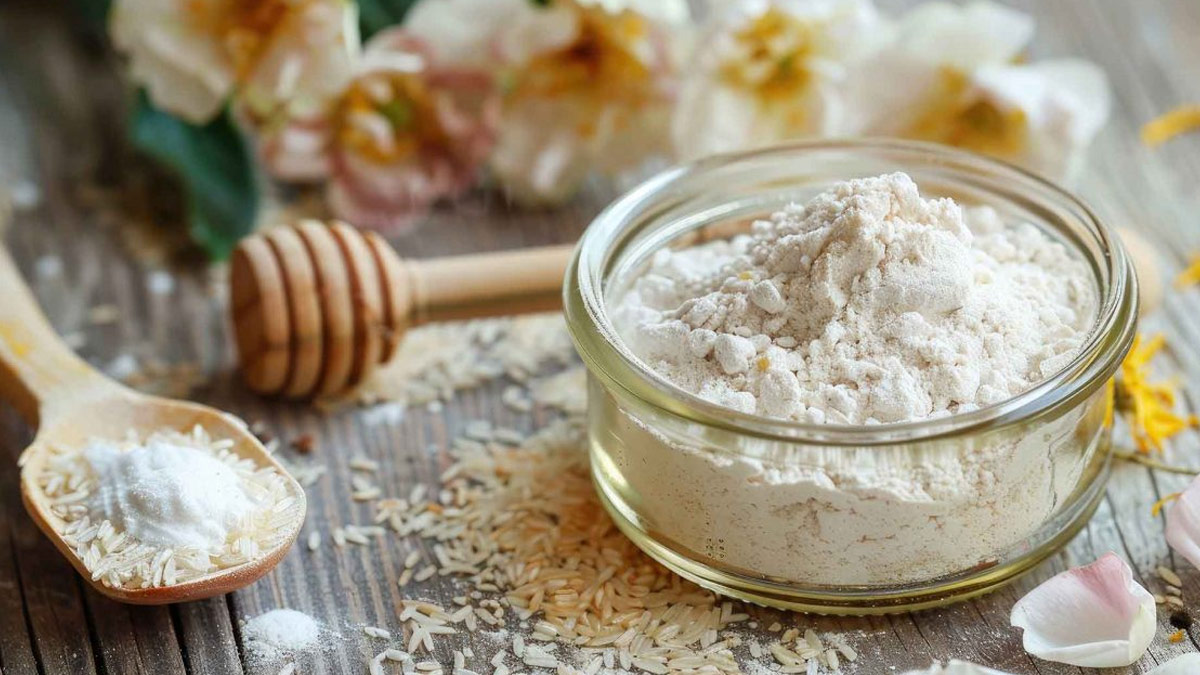
In the ever-evolving world of skincare, one trend that continues to dominate beauty discussions on social media is the use of rice water and rice-based products. From glowing skin to stronger hair, rice has long been celebrated as a natural beauty secret, especially in Asian cultures. Recently, Kusha Kapila, actor and social media personality, introduced her followers to the concept of using a DIY rice pack as part of her skincare routine, sparking conversations about whether this ancient remedy really works. Let’s dive into the benefits and science behind using rice in skincare, and explore if it’s truly a game-changer for your skin concerns.
Table of Content:-
Kusha Kapila's Take on Rice for Skin and Hair
In a recent Instagram video, Kusha Kapila humorously shared how she incorporates rice into her beauty routine, emphasising that it's not just for eating anymore. With her signature wit, she explained how rice is widely used in South Korea and China in various forms, including face washes, toners, moisturisers, and even hair treatments. According to Kusha, rice’s benefits go beyond the kitchen, with rice water being a staple for centuries in these countries for promoting healthy skin and longer hair.
Kusha, who often shares beauty tips with her followers, demonstrated how to make a simple DIY rice pack for acne-prone skin. In her video, she highlighted that soaking uncooked rice in water, making a paste, and applying it to the skin could address a variety of concerns, including acne and dry skin. While Kusha's playful approach might make the rice pack seem like a magic potion, is there any truth to the claims?
View this post on Instagram
The Science Behind Rice in Skincare
Rice has a long history of use in skincare, but does it live up to its reputation? While many people swear by rice water and rice-based products for their skin and hair, scientific evidence is still catching up. Nonetheless, recent studies have revealed that rice does have some promising properties that might explain its popularity.
A 2023 study published in the International Journal of Molecular Sciences revealed that rice bran oil is rich in antioxidants, which can help protect the skin from oxidative stress. Oxidative stress, caused by free radicals, is a leading factor in premature skin ageing. By neutralizing these harmful molecules, rice bran oil could potentially delay the visible signs of ageing and protect the skin from environmental damage.
A 2024 study published by the National Library of Medicine explored the benefits of fermented red rice and its positive effects on skin health. It found that red rice fermented by the Aspergillus oryzae fungus offers anti-ageing, antioxidation, moisturizing, and skin-whitening properties. These findings support the idea that rice-based products may help maintain youthful, hydrated skin.
Also Read: Samantha Ruth Prabhu Shuts Down Weight Critics, Reveals Strict Anti-Inflammatory Diet For Myositis
Rice water, in particular, has been linked to reduced signs of ageing. A 2018 study published by the Multidisciplinary Digital Publishing Institute found that rice water could reduce the activity of elastase, an enzyme responsible for the breakdown of elastin in the skin. Elastin plays a crucial role in skin elasticity, and its breakdown leads to the formation of wrinkles and sagging. The study suggested that rice water may help prevent or slow down the ageing process by preserving elastin.

Antioxidant Properties of Rice
Interestingly, a small 2018 study from the Research Institute for Medicines in Lisbon tested rice water gel on the skin for 28 days. The results indicated that the gel had antioxidant activity similar to ascorbic acid (vitamin C), known for its skin-brightening and anti-ageing effects. This suggests that rice water may not only help protect the skin but could also contribute to a brighter complexion and reduced pigmentation over time.
Is It Effective for Acne-Prone Skin?
Kusha Kapila’s rice pack may help with acne-prone skin due to rice’s ability to soothe inflammation and provide a cooling effect. The antioxidants in rice may also assist in reducing redness and irritation, giving your skin a calmer appearance. However, it’s important to note that rice water or packs are not a cure-all for acne. For more severe cases, it's always best to consult a dermatologist for personalized treatment.
Bottomline: Does Rice Really Tackle Skin Concerns?
While scientific research on rice-based skincare is still limited, there’s enough evidence to suggest that rice, especially rice water and rice bran oil, offers valuable benefits for the skin. Its antioxidant, anti-ageing, and moisturizing properties make it a promising addition to your skincare routine. However, it’s essential to approach DIY rice treatments with realistic expectations. While it may improve skin texture, hydration, and elasticity, it may not work miracles for all skin concerns, especially severe acne or pigmentation.
Kusha Kapila’s fun and informative video on rice as a beauty staple brings attention to a centuries-old practice, and it may very well inspire many to incorporate rice into their own skincare regimens. However, always remember that consistency, alongside a balanced skincare routine, is key to seeing long-term results.
Also watch this video
How we keep this article up to date:
We work with experts and keep a close eye on the latest in health and wellness. Whenever there is a new research or helpful information, we update our articles with accurate and useful advice.
Current Version
